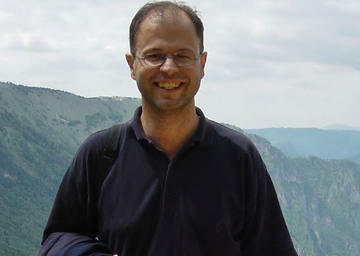
Here the text of the call promoted by ECPMF within the MFRR:
Martinović was convicted for charges of the Criminal Code of Montenegro relating to the creation of a criminal organisation as well as illicit production, possession and distribution of narcotics. He did set up a meeting with defendants over the filming of smuggled weapons in France, but only for journalistic purposes. We maintain therefore, that Martinović’s conviction was politically motivated. Throughout the detention and subsequent trial, his rights to a fair trial have been violated. Prior to his arrest on 22 October 2015, Martinović had already been held for almost 15 months before being finally freed, provisionally.
The retrial formally began on 2 Dec 2019, with a new hearing scheduled for Monday, 6 July 2020, 9 a.m. The retrial hearing takes place in the judges office and is open to public.
In this new trial there are only two defendants (there were nine in the first trial) – Martinović and the woman who works at the travel agency of the lead defendant, already convicted (Dusko Martinovic).
In this retrial, both the court and the defence already questioned the collaborator’s witness, who, several times before has contradicted himself and changed, recorded in the minutes. Consequently, we have strong reasons to believe that this witness gave a false testimony in return for pardon from the prosecution and that the court has misused the law in order to construct evidence.
On the most recent hearing on 11 June, Martinović and his lawyer proposed several measures and documents, which would put into question, the witness collaborator’s statement and prove Martinović’s innocence and the journalistic nature of his involvement in the case. Unfortunately, some of these evidence were rejected by the prosecution.
The court is expected to announce on 6 July, whether the aforesaid proposals will be admitted or if Martinović will be asked to prepare for the closing statements.
This case is particularly important due to recent broader concerns regarding the rule of law and the situation of media freedom in Montenegro. The lack of justice and protection of free and independent media in Montenegro calls for serious scrutiny and must be addressed with utmost urgency. It is urgent to prosecute crimes against journalists, to address government interference in journalistic activity and lastly to combat incitement against journalists. Montenegro must respect the rule of law if they are to achieve membership of the European Union.
We think it is crucial to show public support and international solidarity for Jovo Martinović.
We therefore ask international and local bodies to attend the hearing on 6 July, and, even more importantly, the hearing of the closing statements.
We reiterate our call on Montenegrin authorities to acquit the investigative journalist and drop all charges against Martinović.
ECPMF supported Jovo Martinović’s case in the first trial to cover a part of his legal expenses and to defend him against the accusations. You can apply for legal support here.
This statement is part of the Media Freedom Rapid Response (MFRR), a mechanism, which tracks, monitors and responds to violations of press and media freedom in EU Member States and Candidate Countries. This project provides legal and practical support, public advocacy and information to protect journalists and media workers. The MFRR is organised by an consortium led by the European Centre for Press and Media Freedom (ECPMF) with ARTICLE 19, the European Federation of Journalists (EFJ), Free Press Unlimited (FPU), the Institute for Applied Informatics at the University of Leipzig (InfAI), International Press Institute (IPI) and CCI/Osservatorio Balcani e Caucaso Transeuropa (OBCT). The project is co-funded by the European Commission. www.mfrr.eu
Tags: Montenegro Freedom of expression SLAPP
This content is part of the Media Freedom Rapid Response (MFRR), a Europe-wide mechanism which tracks, monitors and responds to violations of press and media freedom in EU Member States and Candidate Countries. The project is co-funded by the European Commission.


